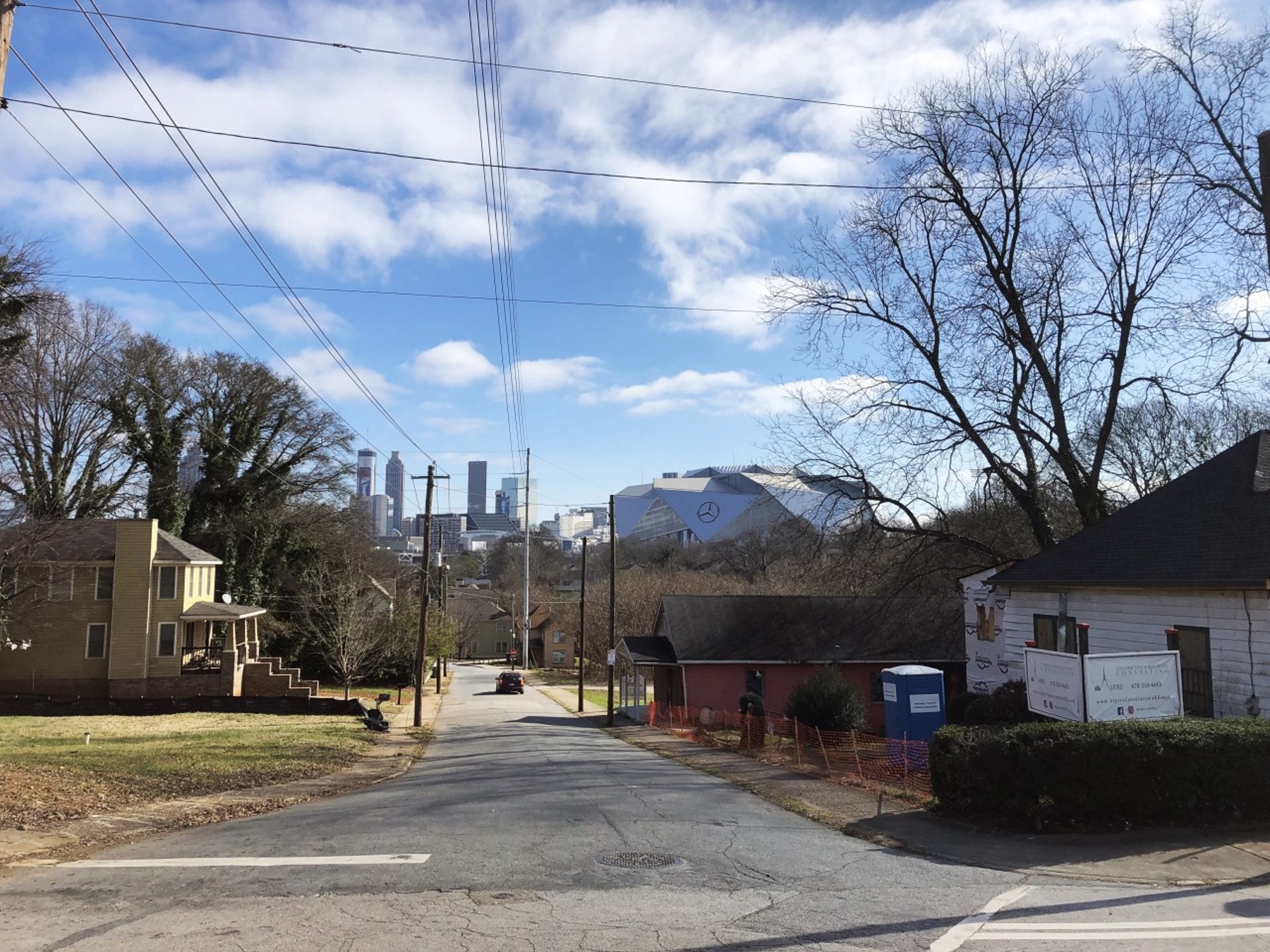Imagine if a nonprofit offered to pay any increase in property taxes for the next 20 years.
In a lot of Atlanta neighborhoods, John Ahmann suspects that kind of announcement would spur a flurry of interest.
“There would be a whole bunch of people that would figure out the program,” Ahmann said, “and probably deluge us with applications.”
But that’s not how it turned out in the communities around Mercedes-Benz Stadium.
The nonprofit that Ahmann leads, the Westside Future Fund, raised several million from business leaders to cover property tax hikes for the neighborhoods’ low-income homeowners.
And to his surprise, after more than a year of alerting homeowners about the program, only about 80, less than a quarter of those estimated to be eligible, signed up.
The program is one of the nonprofit’s efforts to prevent displacement on the Westside as the recently built $1.5 billion stadium next door attracts new investment.
Yet, as the dust settles from the stadium’s biggest national appearance as host to the Super Bowl, the program’s results show just how challenging that work can be.
“What we learned through this program is there is a lot of mistrust in the neighborhoods,” Ahmann said. “That’s probably well deserved.”
Ahmann said the mostly black neighborhoods, including Vine City and English Avenue, have dealt with housing discrimination and predatory lenders.
Those who live in the areas also point to something else.
“The community looks at it like the people they were supposed to trust the first time are coming back for the second round,” said Colette Haywood, vice chair of the local Neighborhood Planning Unit.
Haywood said longtime residents are still disillusioned from the construction of the Georgia Dome when promises for improvement were made and not kept.
She hears that mistrust from her neighbor who asks why Haywood meets with the Westside Future Fund.
“‘Why you foolin’ with them people. They ain’t goin’ do nothing,’” Haywood recalls her saying. “‘You’re just wasting your time.’”
Haywood said she doesn’t know how to answer her neighbor except with results. And she said many Westside residents don’t see enough changes yet that benefit them.
She said maybe once people observe things like the property tax program in action, more will buy in.
Ahmann and the Westside Future Fund hope so.
The nonprofit has already stepped up its outreach, employing people from the neighborhood to knock on doors. It’s also worked to simplify the application process.
“We want to ensure that every homeowner who is eligible to participate and would like to participate participates,” Ahmann said.
The neighborhoods have had some of the lowest homeownership rates in the city, with just 1 in 10 residents living in places they own.
Still, the Westside Future Fund estimates there could be about 400 homeowners who are eligible for the program.
Read more: To Prevent Displacement, Westside Program Targets Property Taxes









